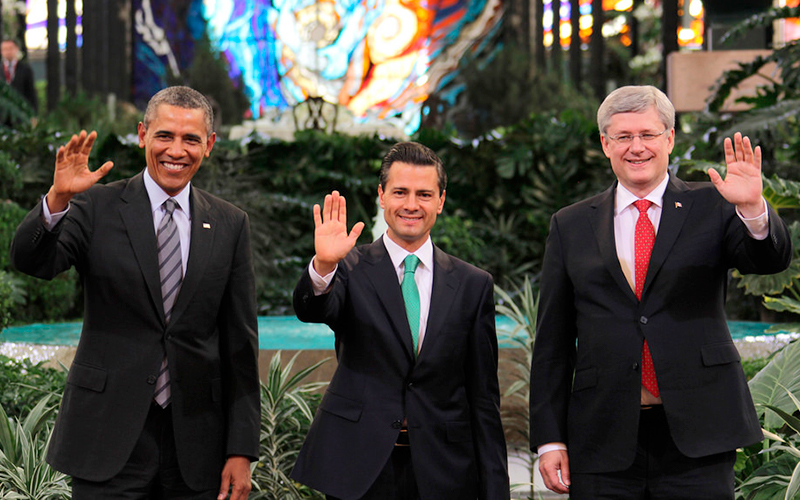New business ventures unite one of the most extensive economic unions in the world further as Mexico removes barriers to foreign investment.

After years of waiting and months of speculation, the results of Mexico’s historic reforms are starting to become known, with strong implications for investors in the U.S. and across the world. Recent cross-border trade and investment deals illustrate how the new framework opens vital sectors to trade and investment, in a strong step toward the realization of a common North American market.
In November 2014, U.S. telecom giant AT&T made history with its $2.5 billion purchase of Mexico’s Grupo Iusacell SA, the country’s third-largest wireless operator. The deal gave AT&T 8.6 million new subscribers, but more importantly created the first-ever wireless provider serving customers in the U.S. and Mexico.
The Iusacell deal, a milestone in itself, coincides with another watershed development: the creation of Mexico’s first privately owned, independent oil company, Sierra Oil & Gas, which is backed by $525 million in U.S. investments. These deals signal a new level of engagement that is reshaping an already dynamic relationship.
Building on one of the most extensive economic relationships in the world, in February leaders from the U.S., Mexico and Canada came together at the 2014 North American Leaders Summit in Toluca to reinforce cooperation in commerce, education, sustainable development and innovation.
This symbiotic relationship has already helped Mexico to become a major global manufacturer, while supporting millions of jobs within the U.S. Thanks to its strong industrial base and thriving relationship with its North American partners, Mexico has surpassed China to become the world’s largest exporter of flat-screen TVs. Mexico has also risen to become Latin America’s largest car manufacturer, and the fourth largest exporter of autos in the world. About one out of every four vehicles imported into the U.S. comes from Mexico, with that share poised to rise as Japan’s Nissan, Germany’s Daimler, and South Korea’s Kia all planning billion-dollar manufacturing plants in the country.
In addition, Mexico is home to a burgeoning aerospace industry that includes global giants like Bombardier, as well as ambitious new startups. Over the past decade, the sector has grown from 100 U.S. and European manufacturers to more than 300 in 2014.
Cooperation at the international level has helped Mexico to successfully modernize its democracy and open its economy to the world, resulting in the creation of globally competitive industries.
Its pro-regional integration stance further heightens the country’s appeal to foreign investors looking for a foothold in Latin America’s expanding markets.
In June, Mexico assumed the pro tempare leadership of the Pacific Alliance (PA) for a year, with Mexican President Enrique Peña Nieto hailing the PA “the most daring regional integration mechanism of the decade”. He later defined the Alliance – comprising Chile, Colombia, Mexico and Peru – as a union of open countries “involved in structural transformations so as to expand social rights and strengthen our democratic institutions”.
The President made the comments when the PA’s four heads of state met in New York at the opening of the 69th UN General Assembly in September, during which Bloomberg referred to the four leaders as “the people who are moving markets and shaking the world”.
Mr. Peña Nieto commented: “We are involved in growth policies that make compatible the active participation of the private sector with the country not losing control over its natural resources, particularly when it comes to hydrocarbons”
As its key industries surge, Mexico will draw upon its revamped energy sector through the Pact for Mexico, as the country’s recent array of reforms is known, to increase output, reduce end-user costs, and accelerate socioeconomic development for its people.
0 COMMENTS